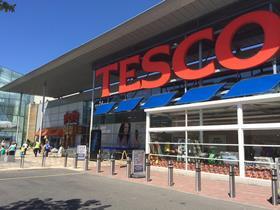
Around 4,500 Tesco employees face redundancy after the supermarket announced sweeping changes to its Metro stores in a bid to “remain relevant”.
The retailer said it is “simplifying and reducing processes” across its big stores, blaming shoppers switching from big weekly shops to smaller, daily visits for the changes.
Tesco said nearly 70 per cent of its customers now use Metro stores as convenience stores.
Britain’s largest supermarket business said it would also be cutting management numbers, as well as reducing opening hours during quieter trading periods, at the start and end of the day.
Further changes will also see faster and simpler ways of filling shelves, with fewer products stored in the back rooms and more stock going straight to the shop floor.
Colleagues will also work more flexibly across the store to improve customer service at the busiest times of day.
Tesco said its priority is now supporting the affected colleagues, helping them to find alternative roles within Tesco for as many workers as possible.
Jason Tarry, UK & ROI CEO, said: “In a challenging, evolving retail environment, with increasing cost pressures, we have to continue to review the way we run our stores to ensure we reflect the way our customers are shopping and do so in the most efficient way.
“We do not take any decision which impacts colleagues lightly, but have to make sure we remain relevant for customers and operate a sustainable business now and in the future.”
Despite having the largest market share in the UK at 27.2 per cent (according to the latest Kantar figures) a very competitive market means the company is pushing ahead with its turnaround plan, introduced by CEO Dave Lewis.
Pressure from the discounters, Aldi and Lidl, is still mounting, as both companies continue to boast the highest growth rates out of all the bricks and mortar retailers.
Earlier this year, more shoppers visited Aldi than Morrisons in the 12 weeks up to April, according to Kantar, signalling a potential end to the traditional “big four” supermarkets.



